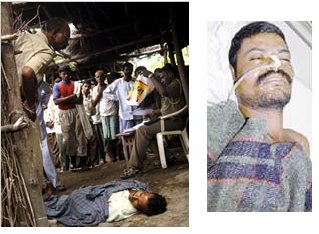
The Indian Farmers Fertilizer Cooperative (IFFCO) has signed a memorandum of understanding with the government of the West African country Senegal for the revival of a 6.6-lakh tonne capacity phosphoric acid plant in Senegal, Industries Chimiques de Senegal, (ICS).ICS is a joint venture with the government of India holding a 6.97 per cent stake, IFFCO 19.1 per cent and the government of Senegal a dominant 47 per cent.
IFFCO will invest $100 million in the next three years for increasing the production to approximately 600,000 tonne. IFFCO will also provide a loan of 10 million dollars to the company repayable on priority. Under the MoU, IFFCO will handle the existing debt of the company to ensure its repayment to the Senegalese banks and international financial organisations in 15 years and those to the trade creditors in two years.
Restructuring of ICS will improve the availability of phosphoric acid in the country as IFFCO will import bulk of it. It is also expected to have a sobering effect on the international price trend which has been rising for sometime.
(For more details:iffco.nic.in)
(Source: TheHindu)







